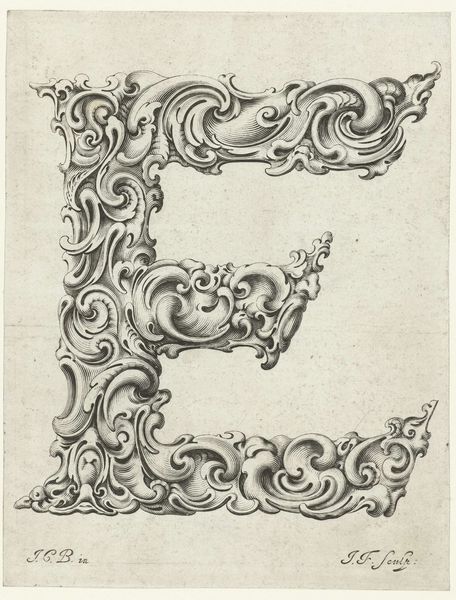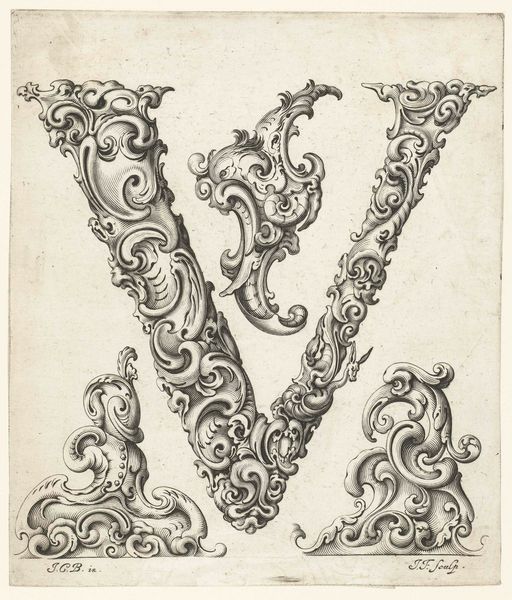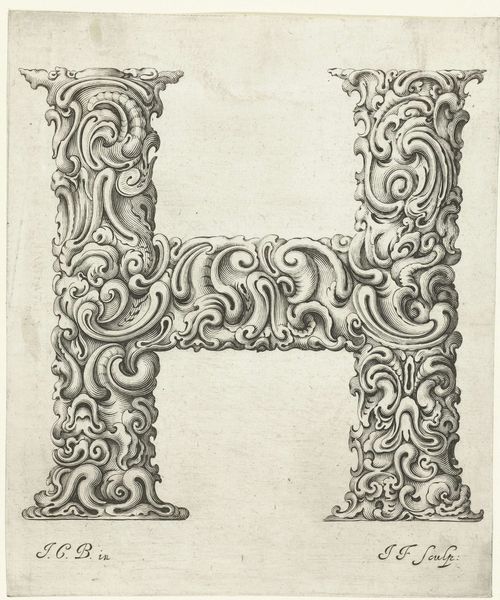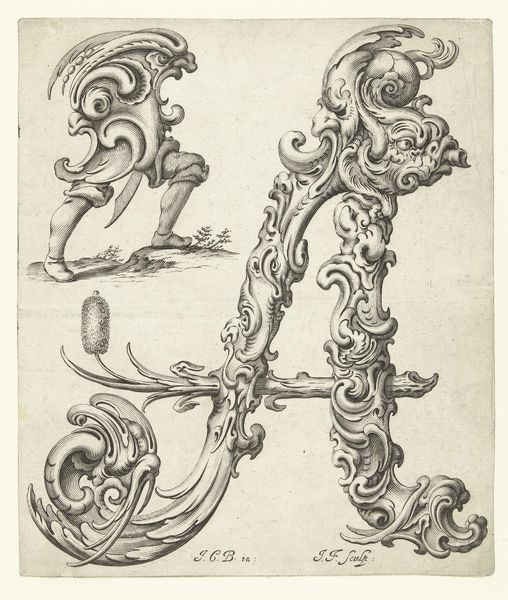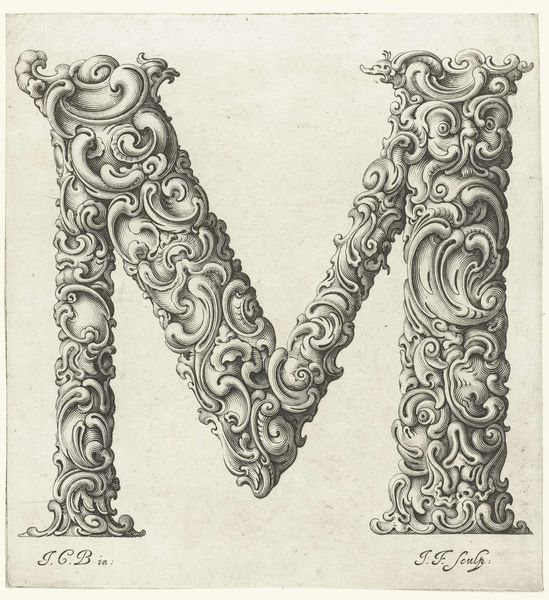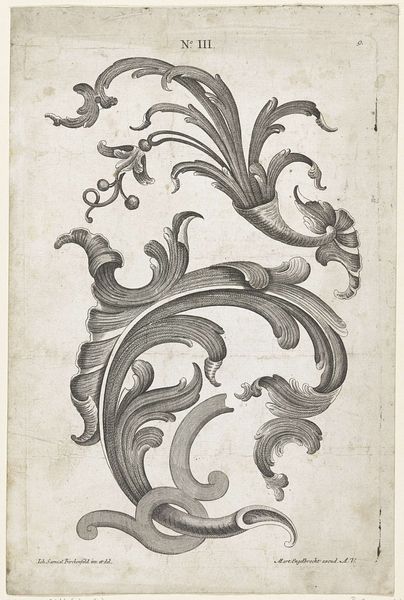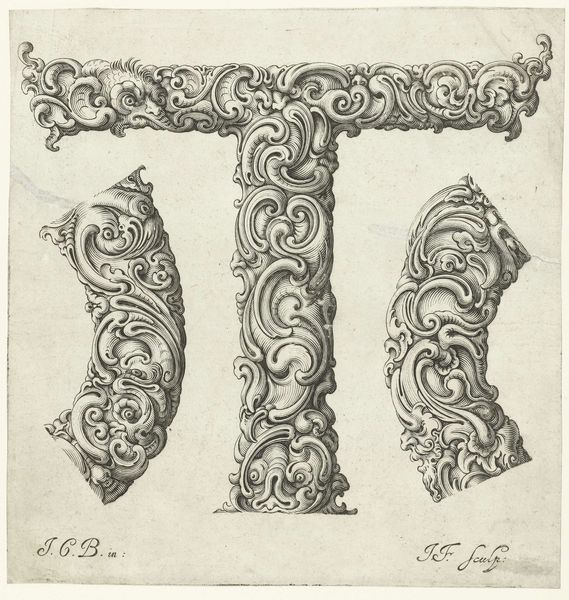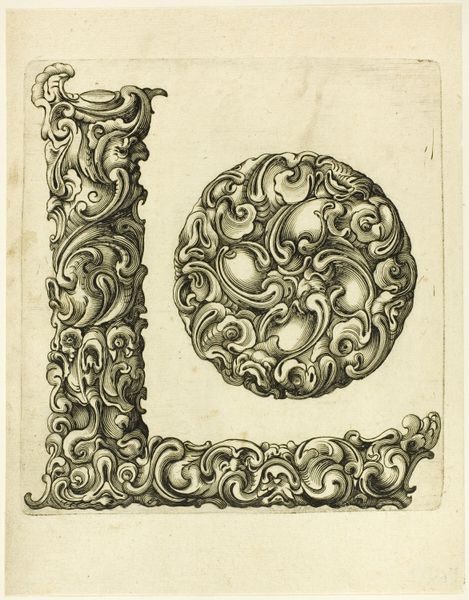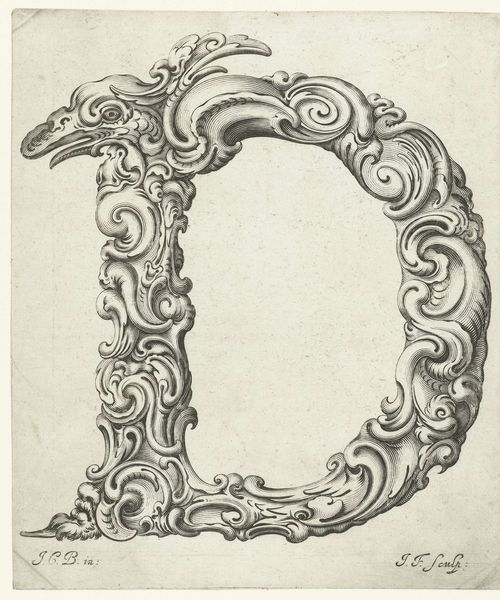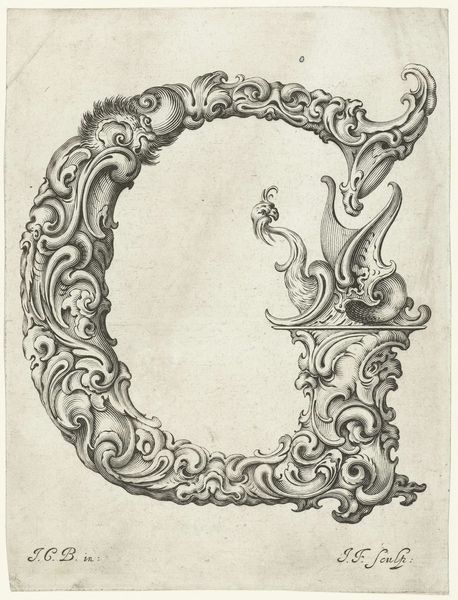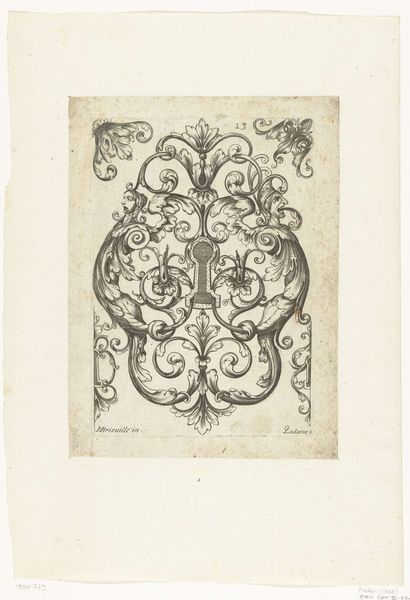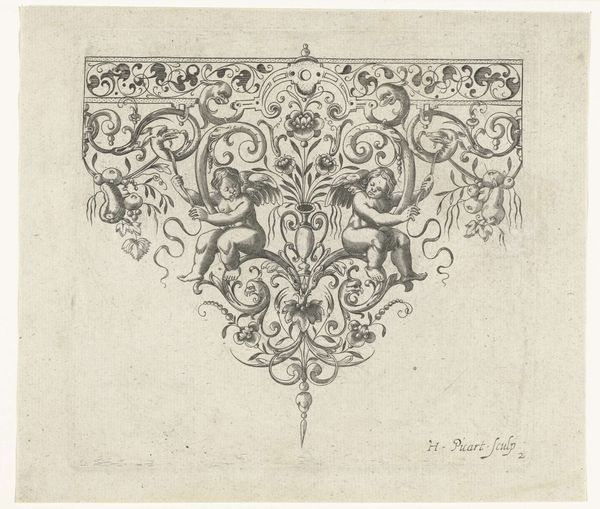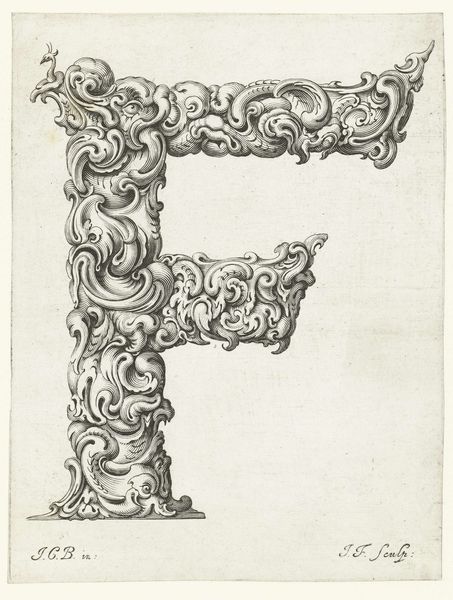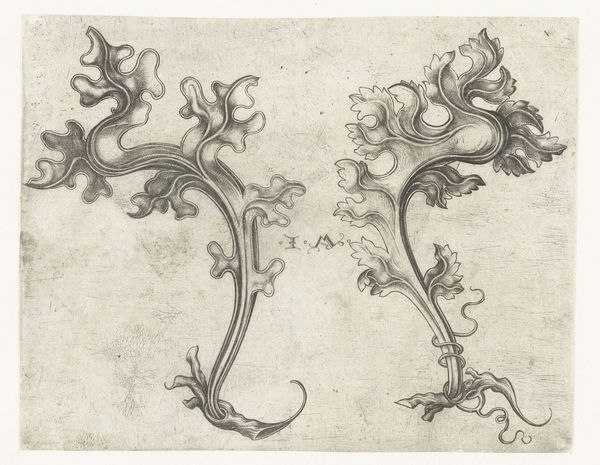
drawing, ink
#
drawing
#
baroque
#
pen drawing
#
pen illustration
#
pen sketch
#
old engraving style
#
personal sketchbook
#
ink
#
geometric
#
pen-ink sketch
#
pen work
#
sketchbook drawing
#
sketchbook art
#
doodle art
#
calligraphy
Dimensions: height 185 mm, width 180 mm
Copyright: Rijks Museum: Open Domain
Editor: We're looking at "Letter Z" by Jeremias Falck, likely created sometime between 1645 and 1650. It's a pen and ink drawing, incredibly detailed. I'm immediately struck by the elaborate, almost ornamental quality of it. What compositional elements stand out to you? Curator: Observe how Falck employs line, not merely to delineate form, but to generate texture and depth. Note the consistent rhythm in the swirling patterns. These arabesques articulate a Baroque sensibility, privileging dynamism over static representation. How do you perceive the relationship between the letterform and the decorative elements? Editor: I see how the letter itself is almost overwhelmed by the ornamentation. It's like the function of the letter, to signify 'Z', is secondary to the artistic flourish. Curator: Precisely. Consider the interplay of positive and negative space. The density of the linework creates areas of visual weight, while the un-inked portions provide necessary contrast. Is it not evident that Falck prioritized surface articulation? It’s a masterful study in visual intricacy divorced from utilitarian purpose. Editor: It really is! I guess I was expecting a simple letter, but it’s so much more than that. I hadn’t thought about the importance of the white space either, but it makes sense to break up all the detail. Curator: Indeed. This work compels us to contemplate the inherent beauty of form and the communicative potential of pure aesthetic engagement. An exercise in meticulous formalism. Editor: I agree! I'll definitely look at baroque art through a different lens now, focusing on those visual relationships instead of just the historical context. Thanks for sharing your insight!
Comments
No comments
Be the first to comment and join the conversation on the ultimate creative platform.
